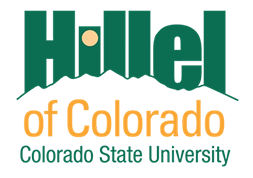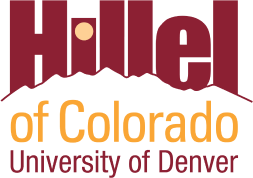
“We all have biases, if we learned them, we can unlearn them.”
Last Tuesday the Anti-Defamation League – Mountain states region, in conjunction with CSU Hillel, CSU Residence Life, Housing & Dining services and Student leadership programs hosted the “Campus of Difference” workshop in the Ingersoll hall seminar room. The workshop focused on giving students and faculty tools and resources for combating forms of bias on campus.
The origin of the workshop stems from the racist and anti-semitic events on CSU’s campus last semester. The incidents included: a noose hung outside a black freshman’s dorm room, a “Hail Hitler” note on the door of Jewish freshman’s room and a dorm room Wifi router being changed to “[expletive] Jews.”
Leading the group discussion was ADL veteran facilitators Larry Pinsker and Sonya Bueno. Pinsker, who has been with the ADL for 15 years, says the incidents that occured at CSU are unfortunately not uncommon in recent times.
“Yes, it’s very upsetting, especially on a college campus,” said Pinsker, “but unfortunately in the last year and a half, we have seen more and more of these acts. What we need to do is help these students speak up and confront these issues of hate on campus and not let them be pushed under the rug. The good news is we all have biases, so if learned them, we can unlearn them.”
“It is very sad, in today’s world we are seeing many of these incidents normalized,” said Bueno, who an alum of CSU. Adding that, “ I hope today’s event helps empower these students to take action against instances of bias in hopes of bring about a more inclusive campus environment.”

While the incidents were clearly disappointing for CSU, Pinsker and the ADL believe the best practices for students and faculty is to first support the victims of these attacks before playing hero.
“What we hope to do is give the students the tools to support the victims of these attacks first before we begin to think if one should approach the aggressors,” said Pinsker. “It is important to help the victims but we also don’t want to polarize the situation more by always attacking the aggressors. Sometimes in those cases it compounds the adverse effect on the victims, bringing more unwarranted attention to the victim. First and foremost we want to comfort and protect the victims in these incidents.”

CSU President Tony Frank has been swift in his response to the hate incidents by recently calling out a nazi group on campus, declaring, “let me keep this simple: a Nazi is a Nazi is a Nazi.” However, his admonishment of these incidents came in the form of an email – a tactic that might be falling on deaf ears for some of the campus community.
“Emails are a start. I do think it’s good to recognize the attacks by writing a campus wide email but obviously it’s not doing enough to change the culture”, said Elana Kadish, a freshman representing the Jewish sorority Sigma Alpha Epsilon Pi. Adding, “Often times most people delete them (emails) so maybe a solution that really forces people to listen to the message or perhaps giving minority communities a bigger voice would be good ideas to pursue.”
Pinsker believes what CSU needs is more training events like the one held Tuesday and a focus on giving the students the power to make change.
“It starts with the students,” said Pinsker. “Surely you need support from the administration but the emails are meaningless unless students want to do the work. If as a student you see a swastika – get together and cover it up, then document and report the incident what you saw. If a hate speaker comes to campus, try and get an opposing speaker to come and counter their views. If enough students stand up and reject hate then those types of speakers and aggressors will have no audience to speak to.”
While the workshop lasted roughly two hours, it clearly was not enough time to cultivate the necessary change on campus, but as Pinsker reminds us it is on the students who attended Tuesday’s event to begin spreading the message.
“What you need to do is spread this message to your friends and then hopefully it mushrooms out and gets the whole campus to change. It’s like turning a ship – it takes time but can be done.”
Coming up later this month is Holocaust Awareness Week (HAW) at CSU. In an effort to end anti-semitic and racist incidents like those last semester Hillel wants to reiterate the origination of HAW at CSU. Over 20 years ago HAW was started by a former CSU Hillel members. Each year our Jewish and wider campus community come together to honor and remember the history of the Jewish people.
Note: Last week Hillel emailed President Frank to ask about plans to combat hate on campus but his office communicated he was unavailable for comment at the time of publishing this article.
If interested copy of the handbook for download – ADL “A Campus of Difference” Handbook PDF
My name is David Kravitz. I’m a senior journalism major and this semester I’m writing stories for Hillel. I love to tell stories and write. I’m originally from Washington state. I enjoy cooking, writing, laughing with friends and enjoy dogs more than people.
CSU Hillel serves as an important bridge from the Jewish kid world to the Jewish adult world. We empower students to become leaders, and provide a warm and welcoming home-away-from-home for every student. Additionally, at CSU Hillel we take pride in cultivating a strong community with our weekly shabbats, sustainability projects and community mitzvahs around Fort Collins, as well as, helping our students learn about Judaism and Israel in whatever capacity most comfortable to them. To learn more about CSU Hillel visit our website and make sure to follow us on social media on Facebook at CSU Hillel and Twitter @CSUHillel.


